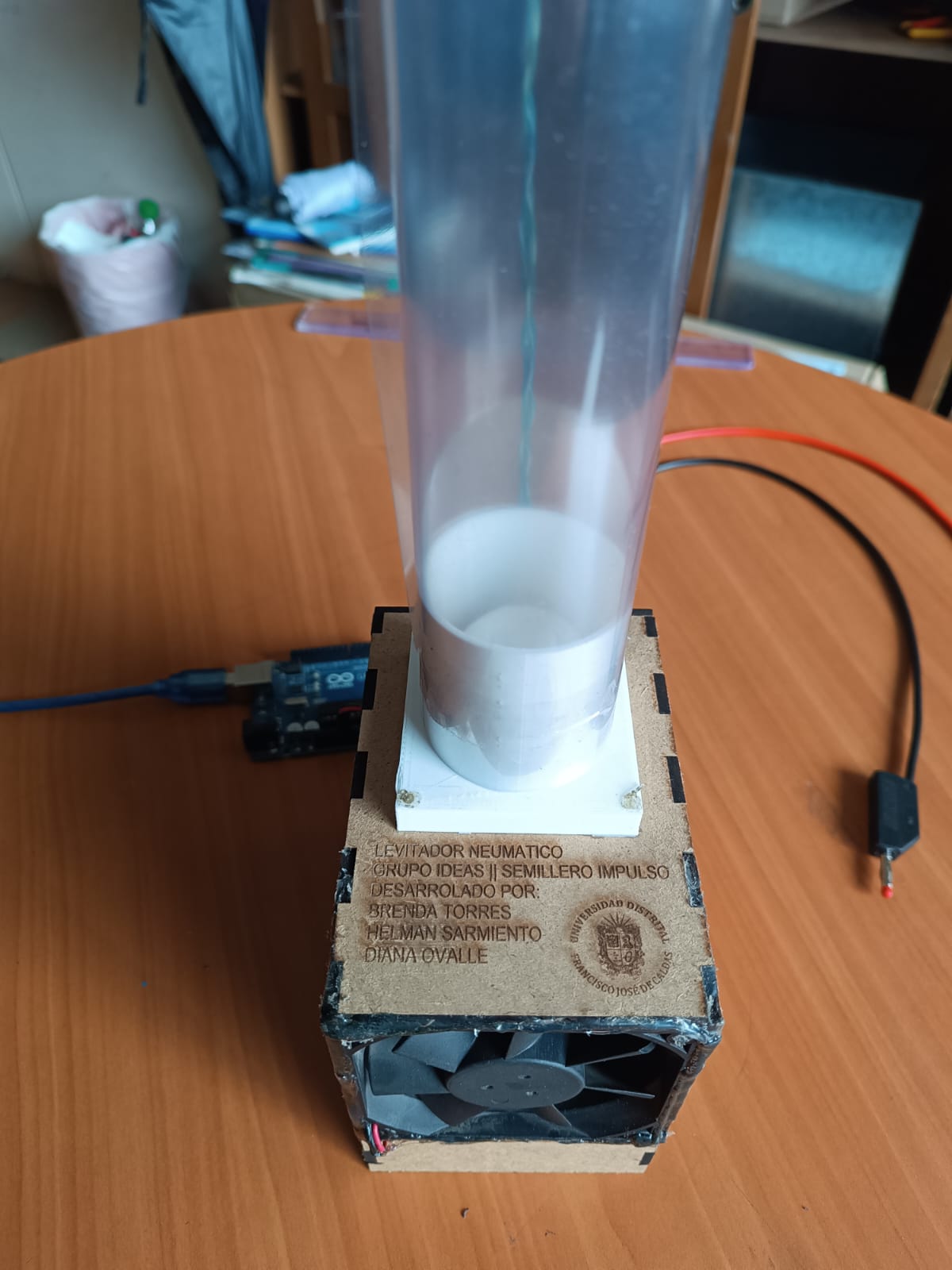Nonlinear Identification and Feedback Linearization of a Pneumatic Levitation System

The IDEAS Research Group presents a pneumatic levitation system that applies advanced control engineering techniques to model and stabilize a levitated object using airflow. The project is developed at the Universidad Distrital Francisco José de Caldas by Brenda T. Torres G., Helman E. Sarmiento P., and professor Diana M. Ovalle M., as part of ongoing research in modeling and control of dynamic systems.
Objectives
The main objective of the project is to develop and implement a control strategy for a nonlinear pneumatic levitation system through:
- Nonlinear mathematical modeling of the levitation dynamics.
- Identification of key system parameters using experimental data.
- Application of feedback linearization for control design.
- Implementation of a discrete-time observer to estimate the object's velocity.
- Validation of control performance via real-time experiments.
Methodology
The system consists of an air column generated by a fan, where a lightweight sphere is levitated. The vertical position is measured using a VL53L0X Time-of-Flight (ToF) sensor, and an Arduino UNO handles data acquisition and control execution. The system is modeled as a second-order nonlinear plant with airflow dynamics.
A mathematical model is derived and validated using experimental data. A feedback linearization approach is used to cancel out the nonlinearities, transforming the system into a linear controllable form. Additionally, a discrete Luenberger observer estimates the velocity based on measured height, improving the accuracy of the control input.
Results
The proposed control strategy allows the levitated object to follow reference positions within a stable range, ensuring minimal oscillation and accurate tracking. Real-time monitoring is achieved through a MATLAB interface, enabling visualization and logging of system behavior.
The use of nonlinear feedback and state estimation proved effective for stabilizing a challenging physical system. The design also allows for future extensions, such as anti-windup mechanisms, adaptive control, and integration with remote interfaces for educational demonstrations.
From the IDEAS Research Group, we extend our congratulations to Brenda T. Torres G. and Helman E. Sarmiento P., as well as to their advisor Professor Diana Marcela Ovalle, for this important achievement, which reinforces our commitment to applied research and to the training of engineers capable of facing today’s technological challenges.
















